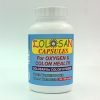A Beginner’s Guide to Using Medical Marijuana
This guide is intended to help patients in California who are new to using cannabis therapeutically to treat a medical condition. Topics covered include:
- Qualifications to become a medical marijuana patient
- Conditions treatable with medical marijuana
- Health care providers who can legally recommend marijuana
- Steps to take after receiving a cannabis recommendation
- What is a medical marijuana card
- Why you should get a medical marijuana card
For starters, it’s important to know that many terms are used for cannabis, yet all generally mean the same thing: marijuana (used interchangeably with cannabis throughout this article and the United Patients Group site), weed, pot, ganja, and herb, just to name a few.
If you have a medical condition that is not being effectively treated with traditional drugs or therapeutic interventions, your doctor may recommend or you may be considering using cannabis for pain and symptom relief. Many questions come up for new patients. Here we will cover all of the basic ones. If you still have questions, check out the resource section of our website or feel free to contact us directly.
Also, if you live outside California, be sure to check what laws and procedures apply to your local area for using medical marijuana as they vary from state to state.
How Do I Qualify to Be a Medical Marijuana Patient?
Any individual suffering from a serious or chronic medical condition in which other traditional measures and medicines have not been effective can see a qualifying health care professional who can write a recommendation for medical marijuana as part of ongoing treatment of the patient’s terminal or debilitating condition. The physician, after completing a physical examination and documenting the medical condition in the patient’s record, will provide a written recommendation stating the patient would benefit from treatment using medical marijuana.
A recommendation is different than a doctor’s prescription that could be filled at a pharmacy. Cannabis is classified by the federal government as a Schedule I drug and therefore doctors are not allowed to prescribe it, but they can supply patients with medical marijuana recommendations that comply with state law, allowing patients to either buy from a dispensary or supplier or grow themselves, in specified quantities.
Besides having a medical marijuana recommendation by a state licensed health care professional, the laws in California also require that you show proof of residency and be 18 years or older. If you are under 18, a parent or guardian must accompany you.
What Conditions Qualify to be Treated with Medical Marijuana?
In California, the following conditions qualify:
- AIDS/HIV
- Anxiety
- Arthritis
- Cancer
- Chemotherapy Side Effects
- Eating Disorders
- Fibromyalgia
- Glaucoma
- Lyme Disease
- Migraine Headaches
- Multiple Sclerosis (MS)
- Radiation Therapy Side Effects
- Variety of Other Chronic, Debilitating or Terminal Illnesses
For more on this, read Illnesses Treatable Using Legal Medical Marijuana.
What Type of Health Care Provider Can Recommend Marijuana for Qualifying Conditions?
Any licensed California healthcare provider, including but not necessarily, your primary physician, can write you a recommendation. It can be more time efficient and is generally suggested to first talk with your primary or treating physician, however, if this fails, there are some doctors who exclusively see patients for medical marijuana evaluations (often referred to as medical cannabis doctors). Here’s a good read on “Tips for Finding a Reputable Marijuana Clinic.”
Here is a list of different types of healthcare providers who can write medical marijuana recommendations in California:
- Medical Doctor (MD)
- Physician Assistant (PA)
- Osteopathic Physician (DO)
- Osteopathic Physician Assistant (OA)
- Naturopathic Physician (ND)
- Advanced Registered Nurse Practitioner (ARNP)
- Psychiatrists
What Is the Next Step After I Receive a Doctor’s Recommendation?
 Once you receive a recommendation, you are qualified to buy, possess, consume, transport and grow cannabis, up to limits specified by each state. You are also entitled to apply for a Medical Marijuana Identification Card, although it is not required.
Once you receive a recommendation, you are qualified to buy, possess, consume, transport and grow cannabis, up to limits specified by each state. You are also entitled to apply for a Medical Marijuana Identification Card, although it is not required.
The next step is to find a nearby dispensary, which can be done by using the search tool on our website or with our new United Patients Group iPhone App compatible with any of the latest iTunes devices such as iPods, iPhones, and iPads. On your first visit to a dispensary, you must bring in either the doctor’s recommendation or a Medical Marijuana Identification Card (MMIC) along with an I.D. that verifies proof of identity as well as state residency. With a recommendation, many dispensaries, upon your first visit, will call the recommending physician for verification.
The next step after finding a dispensary is deciding which type and strain of medical marijuana is best for treating your condition and needs. There are hundreds of different types and strains of medical marijuana as well as different products, such as edibles, tinctures, tonics, etc. Dispensary staff members will help you explore the best kind of cannabis as well as help you decide which method of using medical marijuana is best for you.
What is a Medical Marijuana Card?

In California and many of the states that have approved the use of medical marijuana, the State has created a Medical Marijuana Program (MMP) that is run and operated by the state Department of Public Health and/or County Health and Human Services Department. Once you qualify with a doctor’s recommendation and apply, you will be issued a medical marijuana identification card (MMIC). This card places you on an online state registry in which doctors, dispensaries and law enforcement agents can easily access and verify your approval to use marijuana medicinally. In California, cardholders who are in possession of or cultivating marijuana, up to restricted amounts, are protected under the Compassionate Use Act of 1996 (Prop 215) and SB420.
Why Get A Medical Cannabis/Marijuana Card?
A MMIC can be used to validate you are legally allowed to possess medical marijuana. If law enforcement encounters you in possession of the approved amount of medical marijuana or less, you can show your card and they can immediately check its validity against the national on-line registry. A card also gains you access into dispensaries anywhere in the state.
Note that a card provides some legal protection at the state level, however you still are not protected from federal prosecution as the government still classifies it as a Schedule I drug.
Do I Have to Have a Medical Cannabis/Marijuana Card?
No, if you are a qualifying patient, a valid written recommendation from your health care provider is enough. As mentioned before, however, upon your first visit to a dispensary, the letter has to be verified by the physician either by phone or online.
Final Thoughts
Medical cannabis has been proven to help alleviate pain and symptoms from serious and chronic illnesses that cause much suffering to patients. We hope that this guide has provided a basic understanding of and overview of first steps to using medical marijuana. Please consult with your healthcare professional if marijuana is a good alternative for you. We encourage you to check back frequently for new information as we continuously update our website or to contact us directly with any further questions.






